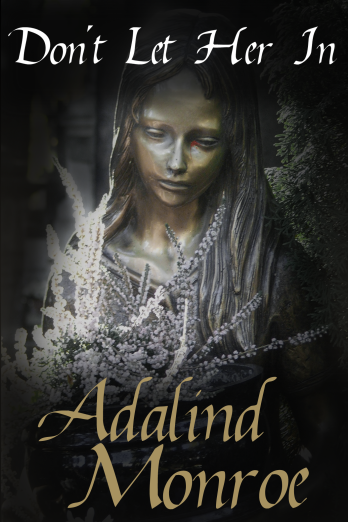
I don’t recommend using this method for writing your fiction, but I can’t really stop you, you rebel.
I tried asking this just earlier today, and was very nearly stoned to death by another writer who felt that the question was so old and over-asked that the answer should be part of the automatic mindset a writer gets the first time they decide to write, like a new writer benefits package complete with FAQ and club pin, but if it’s really asked often enough to be an “old meme”, as they put it, then doesn’t that mean there are people who still want to know? There are always new writers, new reasons to ask the same questions, and I don’t think it’s very fair to slam the book on a topic simply because you, as an individual, have found the answer that works for you.
“It’s obvious,” they said. “Give them flaws.” But is it really that obvious? For some of you, you might be nodding your head yes, and saying “Of course it’s that obvious,” but we’d never be in danger of encountering Mary Sues, Gary Stus, and Paragons if it was really that obvious to everyone.
A Mary Sue/Gary Stu, for those who may not know, is defined as a character lacking flaws that give dimension and credibility, and is frequently a paper-thin “wish-fulfillment” character for the author, allowing them to imagine that they are the ones having these adventures. When you see the term, it’s most often because you’re reading about fan fiction, but this doesn’t mean it hasn’t appeared in traditionally published fiction, either. Bella Swan, for instance, from the supremely popular Twilight Saga (as if you needed the reminder), could be called a Mary Sue. Though we’re not given specific details about her appearance, we are led to believe she’s both beautiful and popular, but for no obvious reason. She doesn’t participate in any meaningful school activities, but remains the center of attention at school so long as it serves the author’s interest, which is usually until Edward shows up, or is mentioned, or thought about, or missing. But this isn’t about my opinion of Stephanie Meyer and her Frankenstein’s Monster of a series, it’s about characterization! (And she has none! ZING!)*
Now, Mary Sue and Gary Stu are the two-dimensional trope extremes of flawless fictional characters, and sometimes they can be easily avoided by adding a simple flaw here and there, but what if you’re writing a legendary hero in an epic fantasy? Say, Heracles. (Go on, say it. “HerAAAAACKles.” It’s fun, right?) Good. Now that we’ve got that out of our systems, our new story revolves around a Greek character named Heracles. He is the son of the king of the gods, but also half human! Is this a flaw? Well, that all depends on how you treat him. If his being half human diminishes his strength, allows him to be killed like any mortal, denies him the ability to ascend to Olympus, or lack all the rhythm it takes to win the ladies through the power of dance, then yes; you have yourself a successful flaw. If, however, being half human just means he’s not a god, but really he’s mostly a god, then you don’t have a flaw at all. What you have is a Paragon.
A Paragon is a peerless example of perfection, and when it comes to writing characters, a Paragon is often a two-dimensional protagonist who can never be defeated. No, not even by the evil Dark Lord of Evil, who has also never been defeated. When it’s obvious the Paragon will always win, there’s no reason to believe there’s any risk involved in the adventure. This is a problem when you want the reader to feel the tension when you give your protagonist obstacles to overcome. Paragons don’t struggle with obstacles, they explode through them and smell fantastic and don’t need to change their clothes ever, because they never get dirty or sweat. That might be great if you’re living in a romance novel where making naughty after a battle would be kinda gross if the protagonist wasn’t a Need No Shower kind of guy, but most of us aren’t romance ingenues, so, in my opinion this is a problem, because it disengages the reader from the character they should care for the most.
But what if we’re not talking about a single character as being flawless. What if we’re talking about an entire race of Paragons? What if we’re talking about . . . elves? Ooooo, mystical, shiny, immortal elves! Well, let’s rewind a bit here. Odds are we’re not talking about the kind of elves that can be described as “wee folk”, who mess about at night making shoes and cookies. We’re probably talking about Tolkienian styled elves, and that’s a problem, too. Tolkien’s elves were far from perfect. On the surface, in The Lord of the Rings specifically, it can appear that the elves embody a kind of perfection. They are immortal, beautiful, magical, in tune with nature, highly skilled warriors, healers, and mediators, but beneath that, many of them suffer from blinding pride. You need look no further than The Silmarillion for proof of the dangers this elven pride can produce.
In many instances Tolkien illustrated that anyone can become corrupted, no matter how innocent or impervious they may seem, from Frodo to Galadriel, yet in modern interpretations of the tall, beautiful, immortal elves what we see are facsimiles painted in perfection. These elves are the upholders of all that is good and moral (according to the author’s perspective), they are the stewards of nature, and they represent the highest moral judgment, all while being beautiful and ageless as everyone and everything else around them is flawed and probably horribly disfigured. Tolkien’s elves live on in our collective memory because of their depth, but when taken as a blank template, they lack any of the elements that make them worth remembering.
I think this quest for depth is what people are trying to address when they ask about perfection. They’re not looking for a chorus of “There’s no such thing as perfection,” a phrase that can mean “so just write whatever you want, and hang the opinions of everyone else”, or it can mean “so no one will believe it if you write it”. Either way, it’s one of the least helpful phrases I can think to offer in response to any question about the subject. I think one of the things we’re really asking here is “How close to ‘perfection’ can I write a character or race before the reader stops connecting with them?” and I think part of the answer comes down to both defining what “perfect” means to us as individuals (part of the “there is no perfection/utopia because no one can agree” argument) and defining what we consider to be the plausible flaws that bring a character or race away from the brink of perfection. It doesn’t have to be a huge flaw like “was blinded six weeks ago and is struggling to cope”, it doesn’t have to create a Damaged Character like “witnessed the death of parents and became obsessed with bats and vigilantism” , it just has to be believable for the character in their situation, like “extreme aversion to the color yellow, which happens to be the favorite color of the love interest”.
For me, a character expressing the idea of “perfection” is one that is no longer in need of personal growth. They are at the apex of development, and have no room for improvement. Where a Mary Sue or Gary Stu lacks flaws, the “perfect” character, the Paragon, lacks the ability to change. Regardless in what manner change would manifest, the absence of change makes a flat, boring, and sometimes very annoying character. What we want to see when we follow a character’s journey is growth. We want to see them change over time, to be effected by the events and people around them. Frodo’s shift from the happy homebody Hobbit of the Shire to the haunted soul who sails away with elves to Valinor. Luke Skywalker’s change from the naïve young mechanic on Tatooine to the self-assured Last of the Jedi, capable of putting a stop to his father and the Emperor. Rand al’Thor’s descent into madness via unrelenting harassment from shrewish women on all sides. This is what we want to see! Well, maybe not the last one so much. But what we don’t want to see is Heracles sweeping peril from his doorstep with a yawn before sitting down to a nice cup of ambrosia. We don’t want to see the Doctor and his companions walk away unscathed every time something threatens all life on Earth. We don’t want to see Dr. House show up to work with a smile and a bounce in his step, tenderly see to the patient and their family, and solve every mystery with sensitivity and as little conflict as possible before he skips home, whistling, to spend a happy, but uneventful evening with his family. That’s just not House, and love him or hate him, he’s memorable because of all his flaws.
So go ahead and make a character people hate, but make them hate him/her for their flaws and not the lack thereof.
—–
*Example of personal opinion. No looking to start a fight between Twilight supporters and non-supporters, so focus on the topic, not the zing.
ABOUT THE AUTHOR:
Adalind Monroe is a wildly successful novelist in her head, trying to get the world to catch up by producing quality blog posts and unbelievable feats of fictional daring do. She enjoys Chinese food and short walks on the beach. Actually, she prefers sitting on the beach; the sand is too hot for her sensitive baby feet.
If you enjoy her writing and want to experience the magic that is character growth in action, download “Don’t Let Her In”, a weird fiction tale that will chill the willies right out of you and replace them with more different willies. Worse willies. The williest of willies. Also, it’s free, damn you. FREE!






